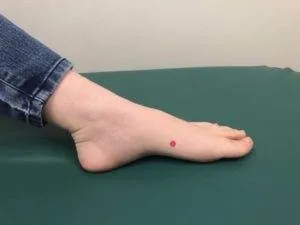-
 Art of Wellness Acupuncture & Traditional Chinese Medicine (TCM)11704 Wilshire Blvd, Suite 295, Los Angeles, CA, 90025
Art of Wellness Acupuncture & Traditional Chinese Medicine (TCM)11704 Wilshire Blvd, Suite 295, Los Angeles, CA, 90025
myartofwellness@gmail.com310-451-5522 Office Hours
MonClosedTue7:30 am --4 pmWed7:30 am --4 pmThu7:30 am -- 4 pmFri7:30 am -- 4 pmSat7:30 am -- 4 pmSunClosedOur office opens from Tuesdays to Saturdays 7:30 am to 4 pm, will be closed on Memorial day, Independent day, Labor day, Thanksgiving day, Christmas and New year.
-
Recent Posts
- How to Treat De Quervain’s Tenosynovitis With Acupuncture and TCM
- Chinese New Year 2026: Year of the Horse
- Acupuncture and TCM Treatment for Perimenopause Symptoms
- How to Treat Insulin Resistance With Acupuncture and TCM
- How to Treat Metabolic Syndrome With Acupuncture and TCM
- How to Treat Syncope With Acupuncture and TCM
- How to Treat Thoracic Outlet Syndrome With Acupuncture and TCM
- How to Treat Dupuytren’s Contracture With Acupuncture and TCM
- How to Treat Nutcracker Syndrome With Acupuncture and TCM
- How to Treat Rosacea With Acupuncture and TCM
- How to Treat Perioral Dermatitis With Acupuncture and TCM
- Lymphatic Drainage With Acupuncture and TCM
- How to Treat Turf Toe With Acupuncture
- How to Treat Nerve Pain With Acupuncture and TCM
- How to Treat Watery Eyes With Acupuncture and TCM
- How to Treat Ovarian Cysts With Acupuncture and TCM
- Sign up to receive news and updates and get my free report:“The Top 10 Reasons to Try Acupuncture”

December 2025 M T W T F S S 1 2 3 4 5 6 7 8 9 10 11 12 13 14 15 16 17 18 19 20 21 22 23 24 25 26 27 28 29 30 31
Stress & Anxiety
How to Help Stroke Recovery With Acupuncture and TCM
By Qineng Tan, L.Ac, Ph.D. & Xiaomei Cai, L.Ac., Ph.D.
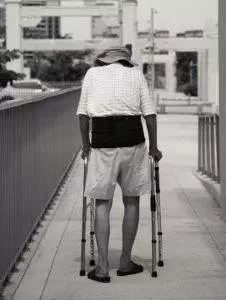
Can acupuncture help stroke recovery? After even a mild stroke, people will often have many problems: weakness in parts of the body, pain or tingling in hands, arms or legs, lack of awareness (or neglect) of parts of the body, memory loss, and slurred speech. There can also be emotional and mental health issues after a stroke, like depression, anxiety, or anger. Stroke recovery acupuncture can have a positive impact on balance, coordination, and overall sense of wellbeing.
A stroke is a medical emergency event that occurs when the flow of blood to some part of the brain is blocked, starving that part of the brain of the oxygen and nutrients it needs to function. Sometimes this happens because of a burst blood vessel (hemorrhagic stroke), or a blood clot (ischemic stroke) creating the blockage. A “mini stroke,” or transient ischemic attack, is when blood flow is only compromised for a few minutes, and then the situation improves. Without adequate blood flow, brain cells deteriorate and die very quickly. Any type of stroke is very dangerous to a person’s health and requires immediate medical care. Even in the case of a mini stroke, or mild stroke, a person must seek care to check for damage and to help prevent a stroke from occurring again.
Strokes are one of the leading causes of death and disability worldwide. Many people who suffer a stroke end up losing some of their physical and mental faculties, sometimes experiencing seizures. How a person goes through the recovery process after a stroke can make a huge difference in the ultimate outcome. Typical post-stroke treatment includes physical therapy to help people regain motor function.
The human brain is actually amazingly able to regenerate itself, given the appropriate nourishment and circumstances. With good nutrition and the right exercise, blood vessels will rebuild themselves, and new neurons (specialized brain cells) will be created. It is vital, though, that the flow of nutrient-rich blood to the brain is maximized, and that a person is motivated and able to work through the difficulties of retraining the brain and body to function.
This is where TCM and acupuncture come in. Acupuncture treatment works to enhance the flow of Qi and blood to blocked areas of the body, while TCM herbs are carefully chosen to provide nutrients people may not be able to get from foods. Acupuncture helps reestablish connections in the nervous system, and stimulates muscle and organ tissues to aid in healing after stroke.
How To Tell If You’re Having a Stroke
“Am I having a stroke?” It’s important to review the signs of a stroke, so that if you or someone close to you could be having a stroke, you can act quickly to get help. If you are having a stroke, seeking immediate medical attention is crucial. A stroke causes damage to brain cells, so every moment is critical when it comes to surviving a stroke and maintaining functional abilities.
“FAST stroke” is the first way to tell if someone is having a stroke; start by remembering the acronym FAST for stroke test:
- F – Face drooping, often on one side, mouth especially looks lopsided
- A – Arm weakness, usually on one side, person cannot lift arm, or it feels numb
- S – Speech difficulty – speech is slurred, or the person is unable to speak or has trouble forming thoughts into words (aphasia)
- T – Time to call 911. If a person shows the signs of stroke, they need medical attention right away. Get them to the emergency room as quickly as possible.
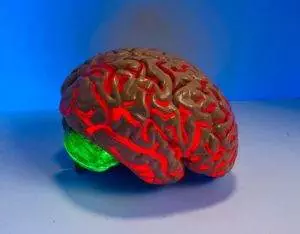
Depending on where in the brain the stroke has occurred, symptoms will vary somewhat. A stroke that occurs in the right hemisphere in the brain will cause weakness and numbness on the left side of the body. It may also affect a person’s ability to recognize what is going on with the weakened parts of the body; this is what we call “neglect.” Visual and/or spatial impairment are common signs of right side stroke; it may be hard to see or find things.
Strokes on the left side of the brain cause weakness on the right side of the body, and may also impair vision and/or the ability to orient oneself in space. The ability to reason, read, and perform mathematical calculations may be impaired. Left side stroke is more likely to cause feelings of depression and change a person’s personality so that they become more anxious and hesitant.
Once a person has been gotten to medical help, health care providers use the NIH stroke scale to assess how severe the stroke is. In some cases the use of anti-clotting medications will restore blood flow to the affected area. This works best if the patient can be given this medication within three hours of the beginning of the stroke. Other times, a procedure called a thrombectomy may need to be performed, in which a surgeon will remove the clot with a thin catheter instrument. In the case of a hemorrhagic stroke, patients may require surgery or a blood transfusion to manage bleeding in the brain.
Can Acupuncture Help Prevent Stroke?

A stroke occurs in the brain, but from the TCM perspective, the problem doesn’t begin or end in the head. A stroke is the result of disruption of the normal flow of blood and Qi in the body, and some type of inciting event causing the blood to rush suddenly upwards into the head. A stroke is often the result of conditions in the body that have developed over time, but then too much stress or an emotional upheaval causes the immediate emergency event of a stroke.
Western medicine views high blood pressure as one of the main factors that can lead to stroke. So, while an acupuncturist also views stroke as being related to problems with the movement of blood, we have concepts that explain what problems within the body are causing the impeding of proper flow. According to TCM, stroke happens due to internal factors of deficiency, stagnation, fire/heat, phlegm and wind:
- Yin Deficiency – especially affecting the liver and kidney systems. This happens often due to behaviors like staying up late, not getting enough sleep, and eating more heat-producing foods.
- Heat – strong emotions of anger and frustration, due to stress and conflict, can contribute to a build up of too much hot energy in the body, especially impacting the heart and liver.
- Phlegm – another internal factor, the formation of phlegm in the body can happen due to unhealthy eating habits. The build up of phlegm particularly affects the spleen and contributes to post-stroke problems with speech, numbness in the limbs, and mental fog.
- Stagnation – this refers to blood and/or Qi being stuck, unable to flow freely through the vessels and meridians. Acupuncture treatment and exercise can help get Qi and blood moving again.
- Wind – In TCM, Wind is a pathogenic factor that can enter the body from the outside environment (external), or wind can be an internal factor, generated within the body. In the case of stroke, internal wind is considered to be the cause of a person losing their conscious awareness of their body and becoming mentally disconnected and/or physically paralysed.
Cupping may be used in addition to acupuncture to aid stroke recovery. Cupping increases blood flow and may be helpful in particular for one of the lesser known symptoms following a stroke: persistent hiccups.
Stroke Rehabilitation Acupuncture Near Me
Your acupuncture and TCM provider has lots of tools at his or her disposal to help you manage your health and longevity. If you have diabetes, high blood pressure, or a history of heart problems, your risk for having a stroke is higher. Your acupuncturist can help you manage these conditions and provide counseling so that you can make the optimal lifestyle changes to prevent stroke. If you have suffered a stroke, you will need lots of support and may need a fairly rigorous course of therapy to help you regain your strength and ability. Patients who are recovering from a stroke should ideally receive 2-3 acupuncture treatments per week in order to get the most benefit. Integrative care may be the key to making the fullest recovery possible after a stroke.
*This article is for education from the perspective of Traditional Chinese Medicine only. The education provided by this article is not approved by FDA to diagnose, prevent, treat and cure human diseases. It should not stop you from consulting with your physician for your medical conditions. Traditional Chinese Medicine is based on Qi, which is an invisible force that usually cannot be observed by modern science. Because science focuses on testing ideas about the natural world with evidence obtained through observation, these aspects of acupuncture can’t be studied by science. Therefore acupuncture and Chinese herbs are often not supported by double-blind, randomized trials, and they are considered alternative medicine therapies in the United States.
How to Manage IBS Diet With Acupuncture and TCM
By Qineng Tan, L.Ac., Ph.D. & Xiaomei Cai, L.Ac., Ph.D.
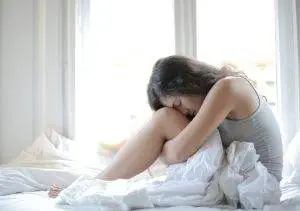
What is irritable bowel syndrome (IBS)? IBS is a chronic gastrointestinal problem that causes uncomfortable changes in the body’s elimination process. One day you’re constipated, then a day or two later, you may have diarrhea. Pains move around the whole abdominal area, and your belly feels full and tight with excess gas. IBS treatment typically involves taking medications and following a special IBS diet, but many people continue suffering with no IBS cure. In this article, we’ll talk about how to get rid of IBS naturally with acupuncture and TCM.
IBS is a common digestive problem that can cause a lot of pain and anxiety around your daily bathroom habits. IBS can cause stress and even depression, compromising your ability to live life without worrying about when you’re going to have to go to the bathroom. Conversely, stress and anxiety function as triggers for bouts of IBS, so the problem becomes cyclical.
This gastrointestinal problem is called Irritable Bowel Syndrome because people who suffer from this disorder seem to have a more sensitive intestinal tract that is highly reactive to IBS triggers. Sometimes this condition is referred to as “spastic colon.” People who have primarily loose stools as a result of this condition are said to have “IBS-D” (diarrhea-predominant IBS), while people who suffer more from sluggish bowels have “IBS-C” (constipation-predominant IBS).
Many people never seek help from their medical providers for IBS treatment, perhaps because they think their discomfort is normal. The ever-changing nature of IBS means it’s hard to get a handle on what is actually happening. The pain in the gut seems to move around all the time, and bathroom habits can feel totally unpredictable. IBS can also lead to the bleeding and discomfort of hemorrhoids.
IBS Causes
According to conventional medicine, there is no one specific cause for Irritable Bowel Syndrome. Having a more highly reactive intestinal tract may be due to many factors, some more clearly mechanical in nature, others more having to do with psychological factors. Inflammation in the gut, gastroenteritis, stressful or traumatic situations, heightened sensitivity to movements and sensations within the abdomen, and miscommunications of the autonomic nervous system between the digestive organs and brain may all play a role in IBS.
We usually think of serotonin as being a hormone in the brain that affects mood and the ability to fall asleep. But serotonin is a neurotransmitter that also plays a key role in the function of the gut, affecting how the intestines move and secrete gastric juices, as well as how we viscerally perceive these functions. Changes or abnormalities in serotonin release or uptake seem to be one of the issues related to IBS.
Top 5 IBS Triggers are:
- Stress
- Abnormal levels of serotonin in the digestive tract
- An infection or abnormal level of bacteria in the digestive tract
- Strong reactions to certain foods/Celiac disease
- Weak colon muscle action
IBS involves, on some level, problems with both the motor function of the bowel itself and the extent to which a person is physically aware of “stuff going on” in their intestines and colon. Inflammation from infections or hormone changes caused by the menstrual cycle can also directly affect bowel motility. Those same things can cause a person to be hypersensitive to every little movement of the intestines, making them feel like painful cramps.
IBS and Gut Health
The balance of gut bacteria, or “flora” in the intestines, has been more recently shown to play a vital role in overall health. Gut bacteria are instrumental in the proper functioning of the immune system and the assimilation of nutrients from our food. The balance of the gut flora can be disturbed by taking antibiotics or a gastric infection, such as norovirus or other flu-type illnesses. Medical science is still making strides in learning how the health of the gut is very closely connected with the brain. It is becoming clear that gut health is inextricably related to mental health.
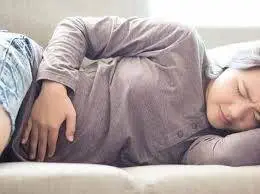
We know that stress, both chronic and acute, can cause all kinds of health issues. The mind-body connection is particularly apparent when it comes to IBS triggers. Feelings of anxiety create a ripple effect through the middle of the body, affecting the whole digestive system, causing pain and volatile action. Fear, shame, and even feelings of panic about having to run to the bathroom keep the whole process in a repeating loop.
IBS treatment often involves antibiotics or probiotics, but this has not been shown to be effective long-term. Many times doctors will prescribe medicines for anxiety (like Valium or Atavan) or depression to help provide IBS relief. However, these pharmacological treatments do not really address the root causes of the syndrome, and they may cause negative side effects, and sometimes create a dependency on the medication.
Top 5 Signs of IBS
A syndrome is a collection of symptoms that often appear together for which there is no clear medical explanation. According to conventional medicine, irritable bowel syndrome is evident when a person has frequent abdominal discomfort, which could mean a “stomach ache” or cramping, and bouts of constipation or diarrhea, or sometimes both, in alternation. In other words, IBS is signified by changes in the frequency or consistency of bowel movements, accompanied by marked discomfort before having them.
Top 5 Symptoms of IBS are:
- Abdominal pain
- Bloating and excess gas
- Constipation and/or diarrhea
- Mucus in the stool or other irregularities
- Nausea
IBS is more common among women than men. This may be due to fluctuations in hormones that affect the chemical balance and muscle action of the intestines. Women may experience more IBS symptoms in conjunction with their menstrual periods, or as a PMS symptom.
Conventional treatment for IBS typically involves the offering of various medications to deal with these symptoms. Anti-spasmodics may be used to help reduce cramping and contractions in the bowel, and anti-diarrheal medications such as Imodium may slow down the movements of the bowel, but these IBS medications do not help to restore true balance to the digestive system.
How to Treat IBS With Acupuncture
TCM and acupuncture work according to holistic principles, meaning that we are careful to look at the whole picture of what is going on with a person: emotionally, spiritually, physically, nutritionally, and energetically. According to TCM philosophy, the spleen is the organ responsible for processing our food and turning it into energy. IBS treatment with acupuncture is a matter of aligning the communications between the Shen (the mind) and the Spleen. Deficiency of the spleen is the primary TCM diagnosis for most patients with IBS symptoms. It is equally important to address problems of the Shen at the same time.
The most common TCM differentiations of IBS patterns are:
- Spleen Deficiency with Liver Qi stagnation: symptoms of this condition include diarrhea, mucus in the stool, abdominal pain, cramping, gassiness, bloating, irritability, and depression with lots of heavy sighing.
- Spleen Deficiency with Stomach deficiency: shows symptoms like watery stools, feeling of fullness and distension after eating, poor appetite, a pale complexion and fatigue.
- Spleen Deficiency with Kidney Deficiency: symptoms include diarrhea, especially in the morning, partially digested food in the stool, aches and pain in the abdomen, lower back, and knees, with a sense of coldness.
Moxibustion is a TCM treatment used in addition to acupuncture to treat IBS. One study showed that acupuncture treatment combined with moxibustion to get rid of IBS was extremely effective for reducing both the discomfort and frequency of bowel movements.
Another study that tested both herbal formulations and acupuncture treatment on patients with IBS showed that both methods were effective at reducing symptoms.
Acupuncture treatment will also focus on reducing stress, anxiety, and fatigue. Acupuncture has been shown to help restore the balance of serotonin levels, as well.
IBS Diet According to TCM
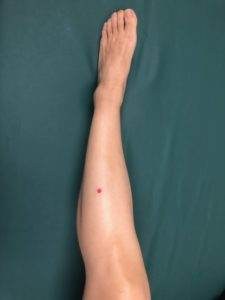
Chinese herbs, as always, are also integral to the successful treatment of IBS. In the TCM philosophy of healthcare, nutrition is considered to be just as important as acupuncture, moxibustion, herbal formulae, and other forms of therapeutic treatment. Herbs are a way to get nutrients into the body that are not necessarily present in the foods we commonly eat. TCM practitioners are trained extensively in the energetic and nutritional values of food and will spend time working with patients to modify eating habits and focus on a special IBS diet. Apart from reducing common problems like excessive coffee and alcohol intake, your acupuncturist will work with you to discover which foods act as IBS triggers for you and help you to make the most beneficial modifications to your IBS diet plan.
Top 5 Acupressure Points to Help IBS
Acupressure can be a very effective means how to treat IBS naturally yourself. Acupressure uses the same collection of points located along the meridians of the body as acupuncture to help eliminate blockages and encourage blood and Qi to move freely through the body. These points located along the spleen, bladder, stomach and “conception vessel” meridians can help provide IBS relief. The conception vessel meridian runs up the front and center of the torso, from the pubic area to the mouth. Also known as the “Sea of Yin,” this channel is instrumental in directing all the yin energy in the body. As it is very exposed, this energy center can feel vulnerable, and may be where we tighten up, hunch over, and try to hide and protect ourselves. Tension along this channel can be a major energetic factor in the cramping and spasming actions of IBS.
Try these top 5 acupressure point for IBS relief:
- CV6 – located two finger-widths beneath the navel, gently rubbing this point with circular motions helps to relieve belly pain, cramping,

Spleen 4 acupressure point and constipation.
- CV12 – located at the midpoint between the lower end of the sternum and the navel, rubbing this point in a circular motion can help relieve gas pain, bloating and acid reflux.
- SP4 – located on the inner edge of the foot, right above where the arch begins, stimulating this spleen point can help relieve gastric spasms and diarrhea.
- UB25 – these two points in the lower back, right beneath LV-4, can help relieve abdominal distension, constipation, and lower back pain.
- ST37 – also known as the “Upper Great Hollow,” these points are located along the outside edges of the shin bones, a few inches below the knees. Pressing firmly here can help relieve abdominal pain, constipation and diarrhea.
Acupuncture Near Me for How to Solve IBS
If the IBS signs described here sound familiar because you or someone you know has been suffering from frequent abdominal discomfort and constipation or diarrhea, or both, it is important to seek help and advice from your healthcare providers. When conventional IBS treatment doesn’t seem to be helping, acupuncture and TCM may help you find IBS relief. Call us at Art of Wellness to get started with an IBS diet plan and course of acupuncture treatment.
*This article is for education from the perspective of Traditional Chinese Medicine only. The education provided by this article is not approved by FDA to diagnose, prevent, treat and cure human diseases. It should not stop you from consulting with your physician for your medical conditions. Traditional Chinese Medicine is based on Qi, which is an invisible force that usually cannot be observed by modern science. Because science focuses on testing ideas about the natural world with evidence obtained through observation, these aspects of acupuncture can’t be studied by science. Therefore acupuncture and Chinese herbs are often not supported by double-blind, randomized trials, and they are considered alternative medicine therapies in the United States.
How to Treat Ringing in the Ears With Acupuncture
By Xiaomei Cai, L.Ac., Ph.D. & Qineng Tan, L.Ac., Ph.D.
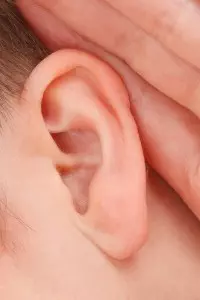
How do I stop ringing in my ears? Why do I have ringing in one ear sometimes, ringing in the left ear or ringing in the right ear? Constant ringing in ears can impact the ability to work, sleep, and live life normally. The fear that you may be going deaf or never be able to shake that humming in ears can even cause depression. Can acupuncture help ringing in the ears? The good news is: yes, it can!
We’ve all experienced that annoying buzzing in ear and temporary hear loss at some point, probably after a loud music concert or working with power tools. But ringing in the ears, also known as tinnitus, that persists long term may be a sign of other health problems.
What is tinnitus? When you seek advice from your doctor, he/she will explain it in detail. Tinnitus is the medical term for the perception of a buzzing sound or ringing in the ears, which might be intermittent or persistent. The sense of humming in the ears or ringing in one ear is common; roughly a third of the population has experienced it at some point in their lives. Acupuncture can be an effective treatment for reducing the volume and insistence of tinnitus symptoms.
Constant ringing in the ears is not really considered a medical condition in and of itself; tinnitus is caused by other underlying problems. Hear loss and the perception of sounds that other people can’t hear, sometimes more like a clicking or hissing, may be due to some malfunction of the auditory nerve that connects the inner ear to the parts of the brain that perceive sounds.
Tinnitus is correlated with chronic stress. Many military veterans suffer from tinnitus due to the frequent very loud, explosive noises they are exposed to during training and combat. Depending on the severity, ringing in the ears can seriously impact a person’s ability to function. Is tinnitus curable? Modern medical science does not have a definitive solution. It may be worthwhile to seek out alternative methods to treat ringing in right ear or ringing in left ear. Acupuncture treatment can help ringing in the ears to fade.
Top 10 Causes of Ringing in the Ears
Most people who suffer from high pitched ringing in ears have experienced some damage to the cochlea, the sensitive cells of the inner ear, because of loud sounds. When a person is exposed to very loud noises over a long period of time, permanent damage to the inner ear can occur. But ringing in ears causes can include several other medical conditions.
The main tinnitus causes are:
- Prolonged exposure to loud noises
- Head or neck injuries, such as whiplash
- TMJ that irritates the auditory nerve
- Circulatory problems like high blood pressure or cardiovascular disease
- Meniere’s disease (a syndrome marked by tinnitus, vertigo, deafness, and a sensation of the ears being clogged)
- Age-induced hearing loss (deaf)
- Infection in the ear
- Overproduction of earwax
- Foreign object obstructing the ear canal
- Congestion of the head and nose due to cold, flu or sinus infection
Certain medications can cause ototoxicity, which damages the sensitive cochlea of the inner ear. Ototox damage can be caused by chemotherapy or by some antibiotics. Loss of balance and the ability to hear sounds with high frequencies are other signs of ototoxicity. Complications of shingles, or herpes zoster infection, can also cause tinnitus and hearing loss.
Conventional Tinnitus Remedies
Currently there is no medical tinnitus cure. Mild cases of ringing in the ears due to head congestion or a brief exposure to loud noises will likely resolve themselves in time. Tinnitus caused by something blocking the ear canal, such as excess earwax, buildup of dirt or hair, a small object or even simple head congestion can be cleared up by removing the blockage.
If the symptom of ringing in the ears is determined to be caused by a mechanical problem (like TMJ), trauma, or injury, then that must be healed in order to resolve the tinnitus.
Ear, Nose and Throat (ENT) specialists may treat tinnitus with vasodilator drugs, which dilate the blood vessels in the ear in the hopes that increased blood flow will help heal damaged cells. Unfortunately, these medications for tinnitus can have some negative side effects, including heart palpitations, headaches, lethargy and anxiety in some patients. Injections or intravenous application of lidocaine to the inner ear has been used as a remedy, but this treatment has also caused side effects such as vertigo and nausea, and in some patients, it worsened their tinnitus. Lidocaine itself may cause ototoxicity, and therefore increase the chances of hearing loss.
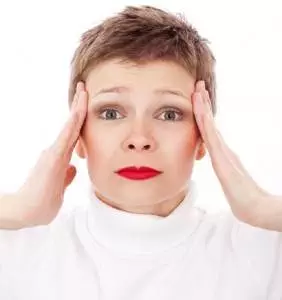
People with a persistent problem of both hearing loss and ringing in right ear are often recommended hearing aids, which help to increase the volume of external sounds, so that the perception of internal noises is reduced. In other cases, people may use electronic sound-masking devices that create ambient “white noise” to help cancel out the sound of humming or ringing in left ear.
Sometimes people are referred to a therapist for cognitive behavioral therapy (CBT), which helps people learn to cope with the condition. Tinnitus retaining therapy (TRT) is specifically designed to help people learn to ignore the constant background noise through habituation. Often people are prescribed psychiatric medications for depression and anxiety to help them sleep better and feel less distressed by the sensation of constant ringing in ears.
Ringing in the ears that persists over time can and should be addressed with alternative therapies if these methods are not improving a person’s quality of life.
Does Acupuncture Help Ringing in the Ears?
Tinnitus is believed to be related to the somatosensory nervous system, which gathers signals from the sensory organs of the head and face and communicates them to the brain. When neck or head trauma, circulatory problems, nerve damage, dental work, or other events cause damage to the auditory nerves or the cochlea of the inner ear, signals can begin to misfire. Hyperactive firing of the auditory nerves can lead to the “phantom sounds” of tinnitus.
According to TCM theory, problems such as tinnitus are caused by imbalances of the energies of the body. Sometimes there is excessive energy or heat arising in one organ system, and/or a deficiency of energy or blood flow in other organ systems. In TCM, we would usually consider ringing in the ears to be related to one of the following differentiations:
- Excessive, rising liver heat
- Excessive liver and gallbladder heat
- Phlegm-fire stagnation
- Kidney essence deficiency
- Blood-Qi deficiency
Often patients demonstrate a combination of two or more of these excesses and/or deficiencies. Excessive conditions tend to show irritability, headaches, and dizziness. The ringing in the ears is loud, and comes on suddenly. With deficient conditions, the onset of the noise is low, more like a whooshing or humming that comes and goes, and may be accompanied by poor memory and focus.
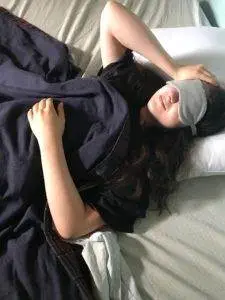
After listening carefully to learn exactly how the patient’s symptoms are presenting, an acupuncture practitioner will use a specific combination of acupoints at each session to dispel blockages and bring the energies into harmony. Acupuncture treatment works on tinnitus by improving blood flow to the affected areas, helping to promote regeneration of nerve tissues, calming anxiety, reducing the effects of chronic stress, and improving sleep.
TCM uses herbal formulae to support the work of the acupuncture treatment. For tinnitus, the TCM practitioner will choose herbs to help boost circulation of blood and Qi, clear heat in the liver, strengthen the kidneys, and calm the mind.
One study showed that patients receiving acupuncture treatments reported a significant reduction in the severity and loudness of ringing in the ears when compared with patients being given a placebo treatment.
Another study at a hospital in China showed that treatment led to a marked improvement of overall hearing capability, reduced loud ringing in ears, and reduced depression.
Tinnitus that is caused by mechanical problems such as TMJ or a whiplash injury to the neck can also be helped by acupuncture treatment by focusing on reducing inflammation and pain in those areas that are impacting the auditory nerves.
Top 3 Tips for Self Care of Ringing in the Ears
If you are suffering from tinnitus or mild deafness, it is important to make some lifestyle modifications so that you can get past the sensation of humming in ears.
- Cut out caffeine, alcohol, and tobacco. It is well known that these chemicals contribute to tinnitus.
- Protect your hearing. When going to a loud concert or using power tools, wear ear plugs.
- Reduce stress and make rest a priority. Chronic stress leads to many health problems, and ringing in the ears is another sign that you may need to focus more on exercise, meditation, mindfulness, and quality time devoted to relaxing the mind and body.
Acupuncture Near Me for Ringing in the Ears
If you or someone you know is suffering from constant ringing in the ears, please see your doctor to have your hearing checked, as well as screening for any cardiovascular, thyroid, or other potential problems impacting your hearing. If conventional treatments do not bring relief of tinnitus symptoms, then we encourage you to call us at Art of Wellness and try an alternative approach to tinnitus remedies.
*This article is for education from the perspective of Traditional Chinese Medicine only. The education provided by this article is not approved by FDA to diagnose, prevent, treat and cure human diseases. It should not stop you from consulting with your physician for your medical conditions. Traditional Chinese Medicine is based on Qi, which is an invisible force that usually cannot be observed by modern science. Because science focuses on testing ideas about the natural world with evidence obtained through observation, these aspects of acupuncture can’t be studied by science. Therefore acupuncture and Chinese herbs are often not supported by double-blind, randomized trials, and they are considered alternative medicine therapies in the United States.
How to Treat Anxiety With TCM and Acupuncture
By Qineng Tan, L.Ac., Ph.D. and Xiaomei Cai, L.Ac., Ph.D.

Everyone experiences feelings of anxiety or apprehension at times. Sometimes people suffer from excessive feelings of dread or panic, even when they are not in immediate danger. In some cases, the complex cascade of emotional and physical sensations encompassed by the term Anxiety is so pervasive that it becomes a chronic mental health condition. TCM and Acupuncture offer a natural, highly effective treatment option to reduce anxiety symptoms.
We are currently living in a particularly harsh reality in which human life is filled with setbacks and potential danger. There is always a chance that something bad might happen to you or someone close to you. In recent weeks, the coronavirus pandemic has understandably created a pervasive sense of worry amongst the population, and the numbers of people filling prescriptions for anxiety-related medications, antidepressants and sleep aids has increased dramatically.
Anxiety is clinically defined as a persistent feeling of worry, accompanied by physical sensations such as heart palpitations, dizziness, and sweating. Sometimes people describe it as being similar to the sensations you feel when you’ve tripped and you’re falling, except that the scary feeling persists for a long time; it doesn’t go away even when nothing is happening. Anxiety disorder is a very common mental health condition experienced by people of all ages; every year about 20% of Americans seek medical help for symptoms related to anxiety.
If you are feeling heightened levels of distress that are affecting your ability to sleep, focus, or care for yourself or others, please be assured that help is available. Acupuncture and other TCM treatment modalities offer a safe alternative to pharmacological drugs that can cause side effects and potentially lead to dependency and withdrawal symptoms. A qualified acupuncturist will conduct an in-depth consultation and create a program designed to specifically address each patient’s individual combination of symptoms and life situation.
What Are the Symptoms of Anxiety?
Doctors classify types of anxiety disorders into several sub-categories, including Generalized Anxiety Disorder (GAD), Social Anxiety, Obsessive-Compulsive Disorder (OCD), Post Traumatic Stress Disorder (PTSD), Phobia-related Disorders, and Separation Anxiety (anxiety in children).
The most common symptoms of various types of Anxiety include:
- Rapid or labored breathing
- Rapid heartbeat or tachycardia
- Feeling “on edge” or irritable
- Sweating
- Difficulty concentrating
- Memory loss
- Difficulty sleeping
- Fatigue
- Stomach upset
- Anxiety headache
Each person will present with a unique combination of symptoms and sensations, along with her own “triggers” or things that seem to cause the symptoms to manifest. Most people who seek medical care for their anxiety symptoms are either prescribed psychiatric tranquilizing medications such as Xanax or Atavan, referred for psychotherapy, or both. Some doctors use antidepressants such as Zoloft, Lexapro or Prozac to treat anxiety. These Selective Serotonin Uptake Inhibitors (SSRIs) may help reduce symptoms in some cases, but all of these types of medications can cause side effects and lead to dependency. TCM and Acupuncture treatments not only address specific symptoms of anxiety, but address the root causes of the disorder.
TCM Deals With All Types of Anxiety Disorders
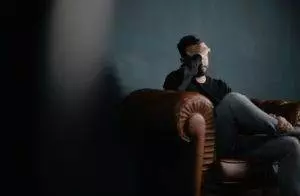
Anxiety, like depression and other mental health disorders, carries the disadvantage of being “invisible.” Other people, and even many medical professionals, simply can’t see physical evidence of the problem, and can’t empathize with the suffering involved. Well-meaning family members and friends might offer suggestions to “calm down” or reminders to stay positive, all with the implication that nothing is really wrong or that “it’s all in your head.” Being plagued with constant self-doubt further amplifies the problem. Anxiety is a real health issue, and TCM offers effective modalities to address it.
Modern medicine has only recently begun to make the connection between emotional and physical maladies. Traditional Chinese Medicine (TCM), on the other hand, has acknowledged for centuries that the mental, emotional and physical experiences of human beings are all inextricably linked. Sometimes a physical injury or traumatic experience can set the stage for a mental health problem. For example, a car accident that creates even minor injuries to the body might trigger future panic attacks, phobias, or Post Traumatic Stress Disorder (PTSD). Other times, a mental health condition like chronic Generalized Anxiety Disorder (GAD) can affect sleep, eating, and other behaviors to such an extent that a person becomes more susceptible to illness and disease. It would not be surprising to see an increase in cases of Agoraphobia (fear of leaving one’s home) and Obsessive-Compulsive Disorder (OCD, which sometimes causes compulsive hand-washing and cleaning as well as hoarding behaviors) as a result of the current coronavirus pandemic. People who experience multiple panic attacks may be diagnosed with panic disorder.
Anxiety disorders already tend to lead to feelings of isolation. Now that most people are spending far more time alone or sequestered with family members and roommates, already existing feelings of fear may be exacerbated. People who have never had to cope with anything beyond normal, mild anxiety may suddenly find themselves feeling real panic for the first time. Additionally, some might feel guilty or ashamed about reaching out for help for these problems when there are so many other people hurting for more apparent reasons. But there is real help for anxiety, and getting that help during this time of crisis makes sense. There is no need to suffer. Find acupuncture near me to address anxiety symptoms and the root causes before the problem becomes more severe and chronic.
Acupuncture for Controlling Anxiety
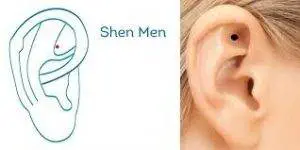
Conventional medicine generally attributes anxiety disorders to abnormal functioning of the brain and nervous system. The feelings associated with anxiety – the emotional sense of worry, the breathlessness and restlessness of the body, the behavioral instincts to freeze or to run – are all exaggerated responses to stress. Stress is the body’s natural reaction to perceived dangers in the environment. When something threatens us, the sympathetic nervous system kicks into gear, and the adrenal glands pump out the hormones that flood the body with energy–what is often referred to as the “fight or flight” response. Normally, once the threat has passed, adrenaline will take some time to move through the body and then dissipate, and a feeling of relaxation is eventually restored. When a person has an anxiety disorder, this hormone release can be triggered by thoughts, and the fear of the physical response itself becomes a part of the vicious cycle.
Acupuncture treatment has been shown to act upon the nervous system, facilitating the release of serotonin, endorphins and noradrenaline, all of which contribute to relaxation and a sense of well-being. Stimulation of specific points have been clinically proven to reduce perceived feelings of anxiety as well as reducing the heart rate and blood pressure of patients. Auricular acupuncture, which specifically uses points on the ear, has been shown to be effective for anxiety. This method is particularly useful, as patients can be fitted with a tiny needle that can be stimulated with gentle pressure as needed to help alleviate symptoms as they appear.
Auricular acupuncture has been used for thousands of years, not only in China, but all over the world. Modern critical analysis has demonstrated that auricular acupuncture affects the parasympathetic nervous system in ways that help alleviate pain and reduce anxiety symptoms. Electro-stim acupuncture, or electro-acupuncture, is another effective modality used by TCM doctors.
How Does Acupuncture Benefit Anxiety Relief of Panic Attacks?
One of the great advantages of acupuncture treatment over conventional methods of talk therapy and pharmacological intervention is that it has an immediately discernible effect. Patients often leave an acupuncture session with a deep sense of calm and relaxation. Reports of improved sleep usually follow quickly. In addition, the long-term effects of regular acupuncture sessions are cumulative, and people report a sustained decrease in episodes of anxiety and panic attacks.
One controlled study compared groups of patients treated with a regimen of acupuncture with moxibustion to a group prescribed a type of benzodiazepine medication. The results showed higher efficacy in reducing anxiety symptoms among the patients receiving acupuncture.
TCM Doctors’ Top 10 Suggestions on Self Care for Anxiety
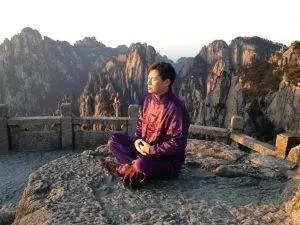
Here are some natural remedies for anxiety you can utilize at home. With consistent practice, these habits will help alleviate stress and reduce anxiety symptoms.
- Meditation for anxiety– Those struggling with anxiety may well be tired of hearing well-meaning friends suggesting they “Relax!” or “just breathe.” But studies have shown that regular meditation practice can significantly reduce anxiety. There are many methods; it is important to find a method that works for you. This study suggested mindfulness meditation may be especially effective.
- Waterfall Meditation – In this exercise, imagine yourself at the base of a waterfall. As you breathe in and out, picture the water gently raining down on you, trickling down each route until the tension inside you releases, relaxing parts of your body one section at a time. Allow your entire body to enter a peaceful and relaxed state. Let the image of the water wash away any stress or anxiety that burdens you.
- Physical Exercise – By now it has been well documented that regular exercise is good for health in every way, lowering the risks of all types of chronic disease. Movement helps reduce anxiety symptoms by reducing adrenal reactivity, increasing the output of endorphins and endogenous (naturally produced in the body) opioids, and even stimulating the growth of new brain cells. It is also suggested that exercise functions as a type of exposure therapy. When people become more used to the sensations of an increased heart rate, heavier breathing, and sweating due to cardiovascular activity, it increases their tolerance for these same symptoms when they appear as part of an episode of anxiety. If you are able to go for a walk or run while following social distancing guidelines, it is especially helpful to get some sun exposure, as well. Put on some music or a favorite workout video; rhythmic movement that engages the large muscle groups provides great benefits.
- Tai Chi and Chi Gong –These ancient traditional forms are “moving meditations” that work upon the endocrine circulatory, and nervous systems to balance energies and strengthen Qi.
- Good Eating Habits – Caffeine, sugar, processed and spicy foods can trigger anxiety. Complex carbohydrates like brown rice, barley, quinoa and oats are relaxing, as are nuts and chickpeas, which contain tryptophan. Now is a good time to become more intimately involved with preparing dishes at home, and this process can also be soothing: a mindfulness exercise that results in a healthy meal! Your TCM provider will provide more detailed instructions for a nutrition program for your specific situation.
- Stress Reduction –Reducing stress goes hand in hand with reducing anxiety. Especially now, carefully manage your daily activities so as not to become overwhelmed. Allot a short period of time for checking the latest news and catching up with friends; then consciously disengage from screens and virtual realities. Social media has already been called into question for its apparent increase of anxiety among teenagers, but it has a real impact on people of all ages. Comparing your situation and surroundings to the carefully curated content you see on sharing platforms can make you feel pressure, shame, a sense of inadequacy. Commit to being grounded in your immediate surroundings and grateful for the blessings that are in your life right now. Recognize that, while it is important to educate yourself about the novel coronavirus, many of the opinions being expressed online are not informed and are designed to provoke an emotional reaction. Avoid reading comments that you know might be triggering.
-

Acupuncture treatments can alleviate sleep anxiety. Sleep Better to Combat Sleep Anxiety – Repetitive, OCD intrusive thoughts and restless energy within the body can make sleeping difficult when you are experiencing sleep anxiety. Cortisol–another stress hormone–levels tend to rise in the evening, and many people register this sensation as anxiety at night. Eating simple carbohydrates like sweets or chips suppresses cortisol and offers a temporary feeling of relaxation. But consuming these foods or alcohol to artificially reduce stress leads to less restful sleep later. Dr. Tan and Dr. Cai can offer many suggestions for how to modify your habits to achieve a better night’s sleep.
- Learn a Language – Distance learning has quickly become an integral part of our lives. Many people are using their time at home to learn new skills. Now is a great time to learn a new language. Studying and practicing will help you focus your mind and instill a sense of accomplishment to help relieve anxiety.
- Structure Your Days – Even though daily life has taken an unusual turn, maintaining a consistent schedule helps keep hormone and energy levels more consistent. Rise and retire at about the same time each day. Eat regular meals. Set aside hours for work and much-needed time for rest and relaxation. Creating a structure for your life helps you feel that you are controlling what you can.
- Cognitive Behavioral Therapy (CBT) 5-4-3-2-1 Grounding Exercise – Use this exercise when feeling anxious or suffering a panic attack. This helps you ground yourself in reality by actively using your five senses. Look for the things, and then name them out loud.
- 5 – Count five things in your immediate environment that you can SEE.
- 4 – Count four things near you that you can TOUCH.
- 3 – Count three things near you that you can HEAR.
- 2 – Count two things you can SMELL.
- 1 – Count one thing you can TASTE.
How to Use 3 Acupressure Points for Anxiety Relief
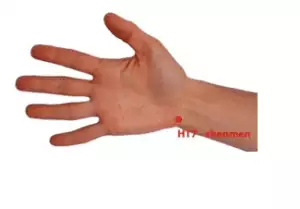
Acupressure is a technique patients can use anytime for symptom relief. Apply gentle, firm pressure to these points.
- Liver 3 is a grounding point that helps redirect rising energy downward. Located between the first and second toes, you will find a very tender spot. Try applying gentle pressure here to alleviate irritability, headaches, TMJ, and anxiety.
- You have probably seen the bands people sometimes wear around their wrists to prevent nausea. These are designed to put pressure on Pericardium 6, which quells queasiness. The point is located between the two tendons on your wrist, two fingers up from the wrist crease. Pressing on it is immediately calming. It helps to open the chest, as well, so if you feel tightness in the chest or shallow breathing, use this point.
- Shen Men, called the “Spiritual gate” point, releases heart fire, excitement, anger, irritation and anxiety.
Look for Acupuncture near me in Los Angeles for Anxiety
At Art of Wellness, one of the top 20 clinics in greater Los Angeles selected by experts, we are concerned that so many people are feeling the weight of these difficult times and having to go it alone. But we are here, committed to helping people whether they are suffering possible symptoms of COVID-19 or intense anxious feelings related to fear of the virus. Please do not hesitate to reach out to us at 310-451-5522 or email us at myartofwellness@gmail.com if you or someone you love is battling anxiety.
*This article is for education from the perspective of Traditional Chinese Medicine only. The education provided by this article is not approved by FDA to diagnose, prevent, treat and cure human diseases. It should not stop you from consulting with your physician for your medical conditions. Traditional Chinese Medicine is based on Qi, which is an invisible force that usually cannot be observed by modern science. Because science focuses on testing ideas about the natural world with evidence obtained through observation, these aspects of acupuncture can’t be studied by science. Therefore acupuncture and Chinese herbs are often not supported by double-blind, randomized trials, and they are considered alternative medicine therapies in the United States.
How to Treat Stress with TCM and Acupuncture
by Qineng Tan, L.Ac., Ph.D.
Nowadays, we hear pretty constantly that everyone is “under a lot of stress.” But what is stress?
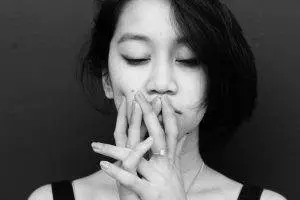
Stress is a natural reaction in the body to any difficulties or changes that we face in life. Stress affects health at every level: physically, mentally, and emotionally. Stress can bring a lot of negative effects to your health and your career. TCM and acupuncture offer a unique treatment to stress management without any of the side effects that anti-depression drugs cause. Acupuncture treatment often brings people immediate stress relief, as they leave the clinic feeling calm, relaxed, sometime even euphoric. But TCM and acupuncture can also provide meaningful reduction in the toxic effects of long-term stress over time.
In this article we will discuss stressors, stress symptoms, and how to combat the negative effects of stress on your body, mind and spirit.
What Are Stress Symptoms?
“But he was so young!” “But there wasn’t anything wrong with her!” Have you heard of someone you know–maybe a friend or a relative, maybe someone famous you admire–dying, suddenly? It’s hard to take it in; we don’t want to believe that these things can happen, especially when someone is only middle aged. It forces us to look at our own lives. Are we taking the time to take care of ourselves? Or are we rushing around from one crisis to another, always stressed out?
Stress is the body’s natural reaction to any difficulties that appear in our lives, physically or emotionally. It’s a normal response to adverse conditions. It’s actually healthy to experience some low-degree, short-term stress occasionally, because this lets the body practice protecting itself. Unfortunately, our modern lifestyle creates a lot of stressful situations for us to endure, and most people are not taught or encouraged to release the effects of stress from their bodies and minds. When stress builds up, it can lead to health problems. It may be that when you go to an M.D. who orders tests, nothing shows up in a scan or a blood test. But that does not mean you don’t have a serious problem.
Chronic stress can cause a variety of symptoms and illnesses and affect overall health and well-being. Many diseases, including cancer, can be linked to stress. Job changes, the illness or death of a family member, relationship issues, financial or business difficulties, caring for and educating children – we all face these stressors at one time or another. For some people, the problems begin in childhood. If a child experiences trauma–parents fighting, or bullying at school, for example–that kind of severe stress can develop into permanent health problems as he or she grows up.
What Does Stress Do to Your Body?
Stress can affect all systems in the body. It starts with the central nervous system and the endocrine system. When something unusual happens, the brain gets a signal: something needs to be done! The brain sends out a message, alerting the body to start producing hormones like adrenaline and cortisol. Adrenaline increases the heart rate, elevates the blood pressure and boosts energy supplies. Cortisone increases sugar in the bloodstream, enhances the brain’s use of glucose and increases the body’s ability to repair tissues.
The body’s initial reaction to stress is to protect itself. But if you are under this kind of stress constantly–think about it–your body will keep producing adrenaline, causing the heart to beat constantly at a high rate and keep the blood pressure high. Eventually, the body will become exhausted, leading to chronic fatigue, hypertension, diabetes, risk of stroke and heart attack. The lungs become vulnerable, which can trigger asthma, and allergic reactions such as eczema or hives rash. When the cortisone level is high, it causes a constant immune response. Eventually, the immune system becomes imbalanced.
When stressful periods are prolonged, the body can lose the ability to shut off the alert that says something is wrong: what we call the “fight or flight” response. Say you send a soldier to a war zone. The soldier’s job is to shoot the enemy. When the enemy approaches, the soldier starts to shoot. But if the soldier is there fighting for days, weeks, years, and his job is to keep shooting, at some point he stops recognizing who is an enemy or who is an ally. He will shoot anybody. Likewise, the body loses the ability to recognize what is good and what is not good. Stressful life events are often a main factor in the onset of an autoimmune condition, like ALS, MS, lupus, or rheumatoid arthritis. When a person has experienced shocking, perhaps life-threatening, events such as being attacked or surviving in a war zone, he or she may exhibit PTSD symptoms, depression, or panic attacks.
When a person is under chronic stress, the liver has to work much harder. We rely on the liver to clean the blood, but if it gets tired out, it can’t do its job. So toxins don’t always come from outside the body; they can come from stress, when the body becomes more acidic and toxic, increasing inflammation and risk of cancer. Liver Qi problems are a major factor in women’s health problems, including PMS and PMDD.
When we’re upset, the appetite changes, causing us to eat too much or too little, affecting our nutrition. Many digestive problems are related to long term stress: heartburn and reflux, ulcers, cramping, nausea, vomiting, obesity, constipation, bloat, IBS, diarrhea. Sometimes stress shows itself externally, on the surface of the skin, as with eczema or psoriasis.
Stress causes the muscles to become tight and makes the nerves more sensitive. This causes more pain and inflammation.
The reproductive system and the sex drive are, naturally, affected by hormone imbalances. For women, this can cause PMS, fertility issues related to ovarian function, blocked tubes, or unstable uterine lining, and more severe menopausal symptoms. For men, long term stress can cause the testosterone level to drop, the prostate and the urethra to become inflamed and prone to infection. With all of this, it is no wonder that libido and sexual function (erectile dysfunction) take a dive, too.
Stress Management by TCM and Acupuncture
TCM is based on the philosophy that the body, mind, and spirit are inextricably linked. It is only in recent years that Western science has begun to acknowledge the
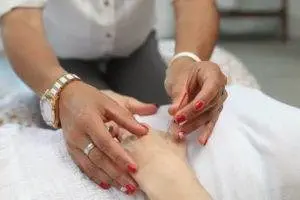
connection between the emotions and our physical health. In TCM, we always look at the whole person. If the emotions are out of balance, the body’s functions will be, too. Keep in mind that without a spirit, the body is nothing more than a container: a box. Likewise, if the body is not healthy, the spirit doesn’t have a good home to live in. That is why we treat stress, emotional fluctuations, and balance the body’s organ systems all at the same time with acupuncture.
Acupuncture is one great way to help you manage your stress and protect you from permanent health damage. Even though you may not be able to avoid stress, you do have the power to manage stress better so that it can’t build up, hurt you internally, and turn into serious health issues.
Top 7 Habits for Stress Relief
Every day, we encounter people and situations that cause frustration. Sometimes several minor incidents over the course of a day can build up until we feel we are at the end of our ability to cope. Other times, we are hit with a big problem that we have no choice but to face. These stressors are unavoidable. What we can do is pay attention to our responses, and train ourselves to respond more calmly when situations arise.
Here are some things you can do in your daily life to manage stress.
- Change the way you view problems. It is human nature to protect ourselves from danger by recognizing the negative energies coming at us. But we can become too accustomed to looking for the “dark side.”A lot of time we needlessly take things negatively. Say you wake up to the sounds of a bird, chattering in a tree. You can think, “Ah, the beautiful music of nature!” Or you can get annoyed. Same situation, different response. Learn how to think positively. Often I ask a patient to “show me your hand.” They show me the palm side, but don’t think to look at the back of the hand. In the world, nothing can exist that has one side only. This is the concept of Yin and Yang; nothing is only good or only bad. There is good and bad in everything. Learn to pay attention to both, but “accentuate the positive.”
- Connect yourself to nature; consciously choose to make yourself one with the Universe. Connect to energy outside of yourself by going to the mountains or the

Spending more time outdoors can help alleviate stress beach, walking barefoot on the sand and listening to the waves. Sit by a river and feel the flow of the water. When you feel anger inside, go out and face something – a mountain, or the woods – breathe out, remove that negative energy from your body, absorb positive energy; make that exchange. By doing this, you gain the perspective of playing a small, yet integral part within the greatness of the universe. This will release stress and give you new strength.
- Learn some techniques: Tai Chi, yoga, meditation, Qi Gong. Tai Chi, for example, trains you physically and emotionally at the same time, cultivating your internal Qi. Deep breathing will make your body more balanced and calm; exhale negative energy and inhale fresh air and energy.
- Engage in regular physical activity, especially cardiovascular varieties. Walk, jog, bike, swim. Going outdoors, getting fresh air and sunshine, is even more beneficial than going to the gym.
- Encourage yourself to engage in some social activity. Stress can cause sadness and depression. People tend to close themselves off. So, you must push yourself to go out, keep up your activities. Talking with friends will release the stagnation from your body and mind. Sign up to volunteer; helping other people will reduce your stress.
- Take time for a hobby. Whatever you enjoy: walking, swimming, reading, listening to music, going to dance class, fishing, golfing. Do it regularly. But it should be something active for your body or mind. Inactive pastimes– like watching television or playing video games, surfing the internet–may seem relaxing, but they can actually increase stress long term. Keep time spent on those passive activities to a minimum.
- Work on your sense of humor! When you laugh, you are happier and so are others around you. Be generous with your positive energy and others will be there to help you when you need it.
Managing stress will pay off, not only by making you happier, but probably also allowing you to enjoy a longer and healthier life. Practicing stress management will help you to recover from existing conditions and prevent other issues from becoming serious in the future. If you need treatment and look for acupuncture near me, come to our clinic Art of Wellness, Santa Monica, Los Angeles, CA. Our clinic is one of the top 19 pick among 825 similar clinics in the great Los Angeles area. Our doctors have over 30 years of experience of practicing TCM and acupuncture.
